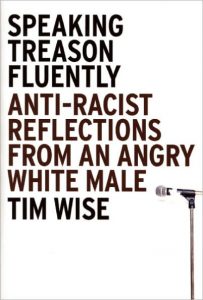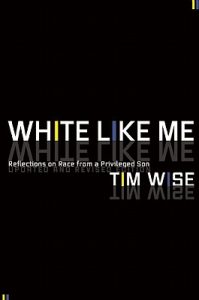Tim Wise
TIM WISE is a prominent antiracist writer and activist who served as an advisor to the Fisk University Race Relations Institute. He lectures across the country about the need to combat institutional racism, gender bias, and the growing gap between rich and poor in the United States.
Subscribe to our newsletter for news & events from Soft Skull Press.
Books
Speaking Treason Fluently
Anti-Racist Reflections From an Angry White Male
In this highly anticipated follow-up to White Like Me: Reflections on Race from a Privileged Son, activist Tim Wise examines the way in which institutional racism continues to shape the contours of daily life in the United States, and the ways in which white Americans reap enormous privileges from it.The essays included in this collection span the last ten years of Wise’s writing and cover all the hottest racial topics of the past decade: affirmative action, Hurricane Katrina, racial tension in the wake of the Duke lacrosse scandal, white school shootings, racial profiling, phony racial unity in the wake of 9/11, and the political rise of Barack Obama. Wise’s commentaries make forceful yet accessible arguments that serve to counter both white denial and complacency—two of the main obstacles to creating a more racially equitable and just society. Speaking Treason Fluently is a superbly crafted collection of Wise’s best work, which reveals the ongoing salience of race in America today and demonstrates that racial privilege is not only a real and persistent problem, but one that ultimately threatens the health and well-being of the entire society.
White Like Me
Reflections on Race from a Privileged Son
THE MODERN ANTI-RACIST CLASSIC: “A brilliant and personal deconstruction of institutionalized white supremacy in the United States . . . a beautifully written, heartfelt memoir” (Roxanne Dunbar-Ortiz).“One of the most brilliant, articulate and courageous critics of white privilege in the nation.” —Michael Eric Dyson, author of Tears We Cannot Stop
The inspiration for the acclaimed documentary film, this deeply personal polemic reveals how racial privilege shapes the daily lives of white Americans in every realm: employment, education, housing, criminal justice, and elsewhere.
Using stories from his own life, Tim Wise examines what it really means to be white in a nation created to benefit people who are “white like him.” This inherent racism is not only real, but disproportionately burdens people of color and makes progressive social change less likely to occur. Explaining in clear and convincing language why it is in everyone’s best interest to fight racial inequality, Wise offers ways in which white people can challenge these unjust privileges, resist white supremacy and racism, and ultimately help to ensure the country’s personal and collective well-being.
Catapult | Counterpoint | Soft Skull
20 Jay Street #704
Brooklyn, NY 11201
646.926.0805 | contact@catapult.co
20 Jay Street #704
Brooklyn, NY 11201
646.926.0805 | contact@catapult.co






